Why Children Should Learn Programming: 7 Future Skills That Coding Develops
In a world where technology has become an integral part of daily life, programming has evolved from a specialized skill into a new form of literacy. Discover how early introduction to coding shapes your child's development and prepares them for a successful future in an increasingly digital world.
Programming: The New Literacy of the 21st Century
The world is changing at an unprecedented pace. What seemed like futuristic technology yesterday is now in every schoolchild's pocket. In this new reality, programming is becoming as fundamental as reading or writing—a new form of literacy essential for full participation in digital society.
According to labor market research, by 2030, over 85% of in-demand jobs don't exist yet. But it's already clear that most will be technology-related. Kids coding education isn't just about preparing for an IT career—it's about developing universal competencies valuable in any field.
Let's explore seven key skills that early programming education develops, skills that will be in high demand in tomorrow's world.
Skill #1: Algorithmic and Logical Thinking
Programming teaches children to think sequentially and systematically. Even when creating simple programs, kids learn to break complex tasks into manageable steps and arrange them in logical order.
How Coding Develops Algorithmic Thinking:
- Structured problem-solving approach — children learn to distinguish primary from secondary information.
- Understanding cause-and-effect relationships — "if A happens, then B follows".
- Planning skills — to write a program, you must think through all steps in advance.
- Analytical abilities development — finding optimal solutions and analyzing various options.
At Coddy, we see how children studying programming begin applying algorithmic approaches not only when writing code but in everyday life—when preparing for exams, planning projects, even in routine tasks. This makes them more organized and effective.
Real-world impact: students who develop strong computational thinking perform better in mathematics, science, and standardized tests, regardless of whether they pursue tech careers.
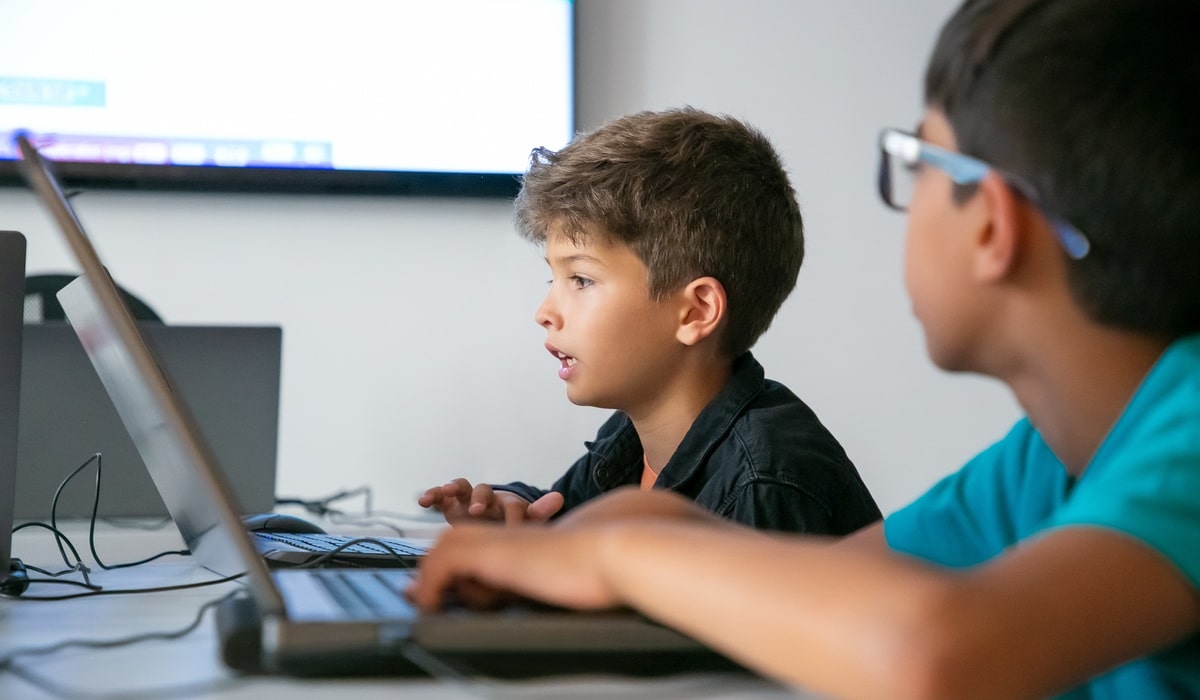
The skill of solving complex problems will help a child not only when writing programs, but also in everyday life.
Skill #2: Complex Problem-Solving Abilities
Programming is a continuous problem-solving process. Writing code that works perfectly on the first try is virtually impossible. Young programmers constantly face the need to find and fix errors, optimize solutions, and overcome obstacles.
How Coding Teaches Complex Problem-Solving:
- Systems thinking — ability to see problems holistically and understand interconnections.
- Decomposition — breaking down complex problems into simpler sub-problems.
- Finding multiple solutions — discovering different approaches to the same problem.
- Optimization — choosing the most efficient solution from several options.
Through programming, children encounter real challenges requiring application of knowledge from math, physics, and logic. This helps them see practical applications of school subjects and increases overall learning motivation.
Career preparation: problem-solving is consistently ranked as the #1 skill employers seek. The World Economic Forum's Future of Jobs Report highlights it as critical for 2025 and beyond.
Skill #3: Creativity and Innovative Thinking
Contrary to popular belief, programming isn't just technical—it's creative work. Writing code is akin to composing music or creating art—it requires imagination, originality, and unconventional thinking.
How Programming Develops Creativity:
- Creating original projects — from simple games to complex applications.
- Realizing ideas — transforming concepts into real products.
- Finding unconventional solutions — when standard approaches don't work.
- Project personalization — adding individual flair to programs.
Creativity developed through programming extends far beyond code creation. It helps children find innovative solutions in various life situations and becomes a valuable quality in any professional activity.
Innovation mindset: tech giants like Google and Apple actively seek creative problem-solvers who can think outside the box—skills cultivated through early coding exposure.
Skill #4: Digital Literacy and Tech Competence
In today's world, digital literacy has become essential. Learning programming helps children not just use technology but understand how it works from the inside.
What Digital Literacy Through Programming Includes:
- understanding principles of how digital devices and programs work;
- conscious and safe technology use;
- ability to evaluate information credibility;
- capability to adapt to new technological tools.
Fact: сhildren studying programming transition from passive technology consumers to creators. This fundamentally changes their relationship with the digital world and increases awareness when using technology.
At Coddy, we help children not only master technical skills but also develop responsible attitudes toward digital technologies. We teach them to critically evaluate information, follow digital safety principles, and maintain ethical standards online.
Safety first: In an era of cybersecurity threats and digital privacy concerns, understanding how technology works provides essential protection and informed decision-making abilities.

Failures are an integral part of learning programming, and coping with them is a necessary skill.
Skill #5: Resilience and Learning from Failure
Programming is a process where mistakes and failures are integral parts of learning. Debugging code and finding solutions teach children not to fear errors but to perceive them as valuable experience and steps toward success.
How Programming Builds Resilience:
- Getting comfortable with iterative process — write code, test it, find bugs, fix them.
- Understanding that errors aren't failures but normal parts of the learning process.
- Developing self-control and patience.
- Building psychological resilience to difficulties.
Result: Children learning programming develop what's called a "growth mindset"—belief that abilities can be developed through effort and perseverance. This quality becomes key to success in any field.
The ability not to give up when facing difficulties is one of life's most valuable skills. At Coddy, we create a supportive environment where mistakes are viewed as growth opportunities, not reasons for disappointment.
Grit development: Stanford research shows that "grit"—passion and perseverance for long-term goals—is a better predictor of success than IQ. Programming naturally cultivates this trait.
Skill #6: Teamwork and Communication
Modern development is almost always a team process. By learning programming, children learn not only to write code but also to effectively interact with others, explain their ideas, and listen to colleagues' suggestions.
Communication Skills Developed Through Programming:
- Ability to clearly articulate thoughts and ideas.
- Capability to work in teams on shared projects.
- Skills in presenting ideas and work results.
- Constructive feedback and accepting criticism
In Coddy group projects, children learn to distribute responsibilities, consider each participant's opinion, and work together toward a common goal. These skills will be invaluable in their future careers, regardless of chosen profession.
Collaboration advantage: GitHub, the world's largest coding platform, has over 100 million developers collaborating. Early exposure to collaborative coding prepares kids for real-world tech environments.
Skill #7: Early Career Exploration
Early introduction to programming allows children to explore various IT aspects and better understand their interests and aptitudes long before choosing a profession.
Benefits of Early IT Exposure:
- Opportunity to try different directions — from web development to game creation and mobile apps.
- Understanding personal strengths and preferences.
- Forming conscious approach to future career choice.
- Building project portfolio before finishing school.
Statistics: According to labor market research, the IT sector continues to be among the highest-paying and most in-demand. In 2025, the most promising IT directions remain software development, systems analysis, data analytics, with mid-level specialists most sought after in the job market.
Education at Coddy gives children the opportunity not only to master technical skills but also to form understanding of various IT professions. Many of our graduates already have clear career visions by high school and purposefully move toward their goals.
Future-proof careers: The U.S. Bureau of Labor Statistics projects software developer jobs will grow 22% from 2020 to 2030—much faster than average for all occupations.
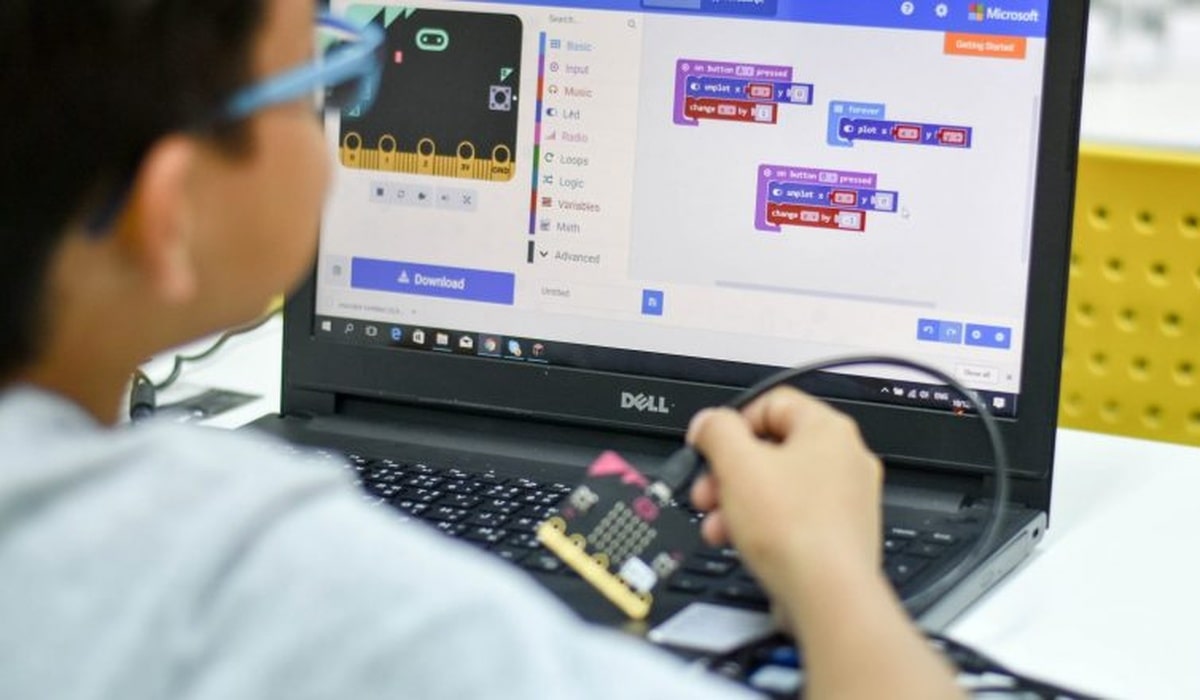
You can start learning programming from an early age, and there are many tools for this purpose that make studying comfortable.
What Age Should Kids Start Learning to Code?
One of the most common parent questions: "Isn't my child too young to learn programming?" Various opinions exist, but experience shows that introducing children to algorithmic thinking basics is possible from an early age.
Recommended Ages for Starting:
- Ages 5-7 — introduction to visual programming environments (Scratch Jr), robotics, game-based learning.
- Ages 8-10 — Scratch, basic algorithms, creating simple games and animations.
- Ages 11-13 — transition to text-based programming languages (Python), creating more complex projects.
- Ages 14+ — in-depth language study, specialization, working on comprehensive projects.
At Coddy, we offer programs for children of different ages, starting from 4 years old. Each program is adapted to age-specific features and built in game format, making learning engaging and effective.
Developmental readiness: research from MIT and Tufts University shows that children as young as 5 can understand basic programming concepts when taught through age-appropriate visual tools.
How Coddy Helps Children Master Programming
Since 2016, Coddy International Programming School has helped children worldwide master modern technologies and develop 21st-century skills. Our approach combines fundamental knowledge with practical skills, allowing children not only to learn programming but also to apply acquired knowledge to create real projects.
What Sets Coddy Apart:
- Over 100 courses in various directions: programming, design, digital security.
- Diverse learning formats — group classes, individual lessons, intensives, summer camps.
- Project-based approach — children create real projects for their portfolios.
- Experienced practitioner instructors from leading IT companies.
- International environment — school branches operate in 28 countries worldwide.
- Proven track record — thousands of successful graduates now pursuing tech careers.
- Industry recognition — partnerships with Microsoft, Google, Unity.
We believe programming isn't just a set of technical skills but a tool for developing thinking, creativity, and self-expression. At Coddy, we create an environment where children aren't afraid to experiment, make mistakes, and find their unique solutions.
Success Metrics:
- 95% of students complete their courses;
- 89% continue with advanced programming courses;
- students have created over 50,000 projects;
- many graduates accepted to top tech universities worldwide.
Conclusion: Invest in Your Child's Future Today
Programming is the language of the future, and the earlier a child begins learning it, the better prepared they'll be for tomorrow's challenges. This isn't just an investment in a future career—it's forming a mindset that will help successfully adapt in a constantly changing technological world.
What Your Child Gains from Programming Education:
- real technical skills in coding and problem-solving;
- completed projects for their portfolio;
- critical thinking and complex problem-solving abilities;
- like-minded friends and mentor connections;
- confidence that technology is understandable and accessible;
- insight into interests and potential career paths;
- preparation for high-demand, high-paying careers;
- skills that transcend technology—valuable in any field.
The time to start is now. Don't let your child be left behind in the digital revolution. While others consume technology, your child can create it.
Ready to Begin Your Child's Coding Journey?
Join Coddy Today!
What We Offer:
- modern facilities with cutting-edge equipment;
- curriculum developed by industry professionals;
- specialized tracks including AI and game development;
- experienced mentors who inspire young minds;
- real projects students take home;
- certificates and materials for continued learning;
- international community of young programmers.
Parent Checklist: Is Your Child Ready for Programming?
Use this checklist to assess your child's readiness:
Basic Readiness Indicators:
- Age 4+ — Can follow multi-step instructions
- Interest — Shows curiosity about how things work
- Basic computer skills — Can use a mouse and keyboard
- Problem-solving interest — Enjoys puzzles or logic games
- Persistence — Willing to try again after initial failure
- Creativity — Enjoys building or creating things
- Screen time available — Has access to computer/tablet
Signs Your Child Will Excel:
- Asks "how does this work?" about apps and games
- Enjoys LEGO, Minecraft, or other building activities
- Shows interest in math or science
- Likes to modify games or create custom rules
- Expresses desire to make their own game/app
- Comfortable with technology
- Enjoys learning new things
What You DON'T Need:
- Prior programming experience
- Advanced math skills
- Perfect grades
- Expensive equipment (we provide everything)
- Tech-savvy parents
Frequently Asked Questions
Q: Will learning programming make my child antisocial?
A: Quite the opposite! Our collaborative projects, hackathons, and team activities develop strong social skills. Plus, tech literacy helps kids communicate better in our digital world.
Q: What if my child loses interest?
A: We make coding fun through game development, creative projects, and age-appropriate challenges. Our 95% completion rate speaks to our engaging curriculum.
Q: Can girls succeed in programming?
A: Absolutely! We actively encourage female students and have numerous success stories. 40% of our students are girls, and they often excel in our programs.
Q: Is online learning as effective as in-person?
A: Our hybrid model offers flexibility. Both formats include live instruction, real-time feedback, and collaborative projects. Many families prefer online for convenience.
Q: How much does it cost?
A: We offer various packages to fit different budgets, with financing options available. Book a free consultation to discuss pricing and find the right fit for your family.
The Bottom Line
In an increasingly digital world, programming literacy is no longer optional—it's essential. By starting early, your child gains not just technical skills but critical thinking abilities, creativity, problem-solving prowess, and resilience that will serve them throughout life.
The future belongs to creators, not just consumers of technology. Give your child the tools to shape tomorrow.
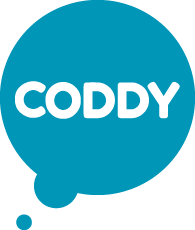

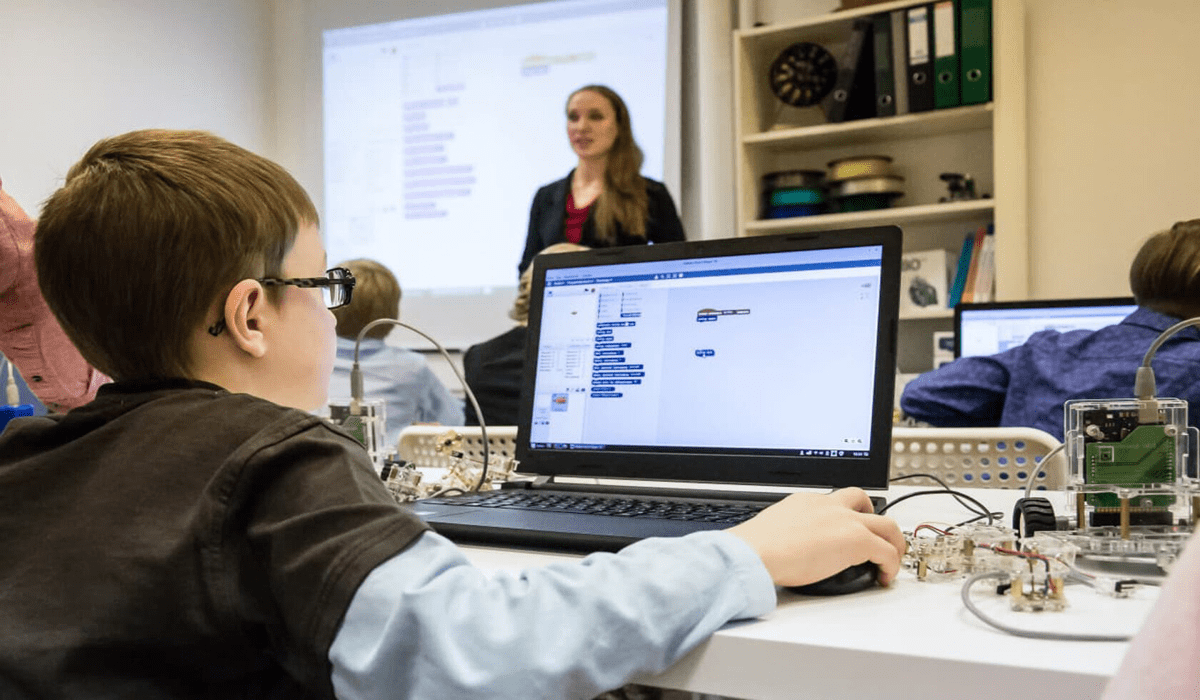

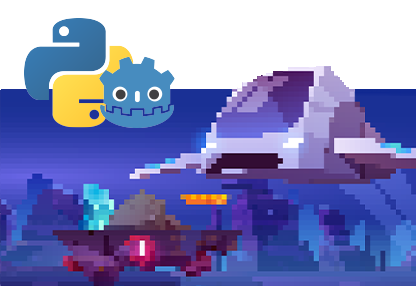
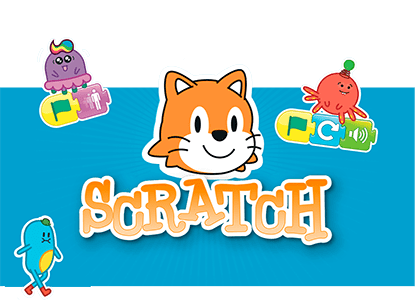
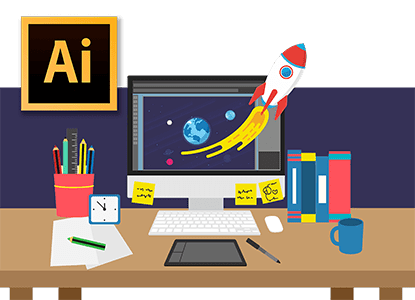
 Back
Back



